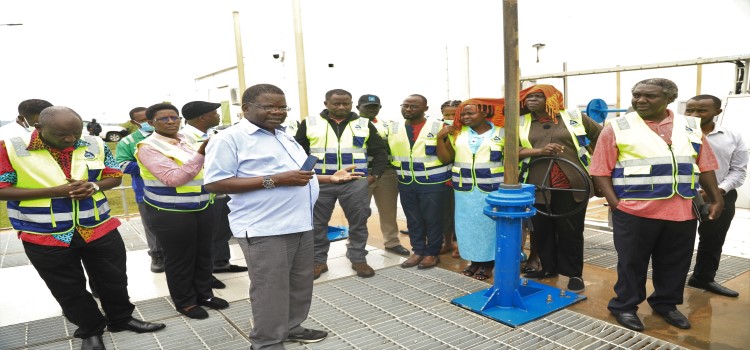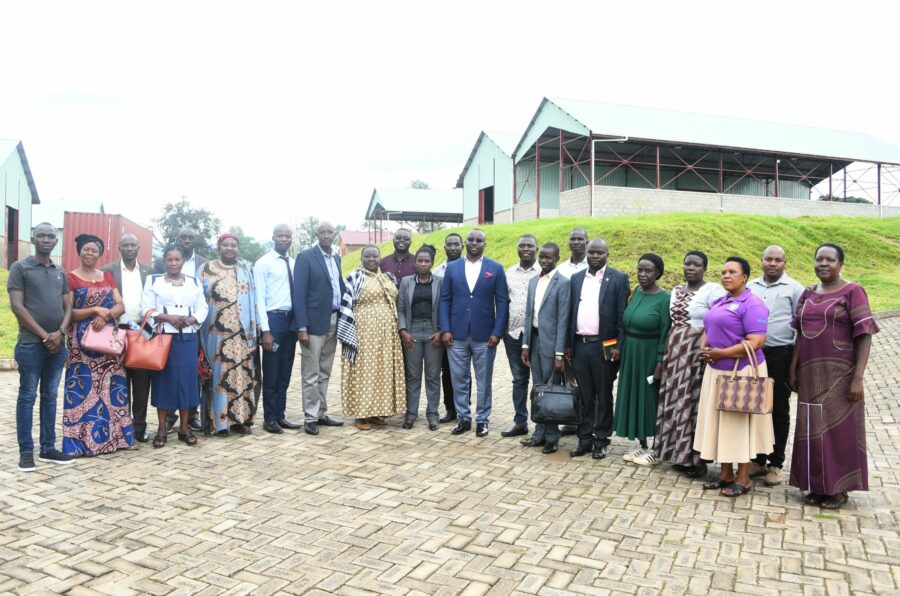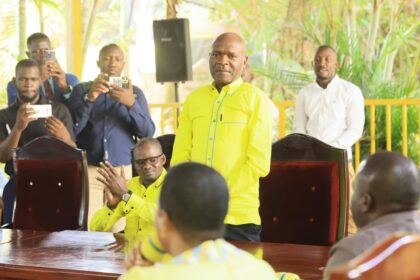Construction works sponsored by Development Response to Displacement Impacts Project (DRDIP) in Hoima district are at a standstill, and the central government takes a lion’s share in the blame for this predicament, experts say.
Vested interests by government officials in securing project contractors have allegedly resulted into one firm being awarded multiple tenders, a scenario that makes it impossible for the projects to take off at a projected pace.
A gigantic amount of more than UGX. 6 billion is sitting idle on beneficiary accounts, designated for school construction in the Bunyoro sub-region.
DRDIP is a World Bank initiative that operates in refugee host community districts, with a prime aim of extending improved social amenities to better the standards of living for the natives.
It is a three-pronged initiative, focusing on infrastructure development (roads, schools, and health facilities), livelihood and sustainable environment, and natural resource management.
According to the DRDIP roadmap, brand new structures for schools like Kabaale Primary School in Buseruka Sub-county, Hoima district were to be constructed at a relatively faster pace.
However to the dismay of the natives, the idea has only remained verbal, on paper because not even a single brick can be identified at the site of the construction, yet funds for the cause were remitted.
John Kyamanywa, the deputy headtecher of the said school, which is in a deplorable state with dilapidated structures revealed that insufficient funds needed for the job has bogged down the construction program, as asserted by contractors.
Ironically, about UGX. 400 billion released in the previous quarter was set aside for the construction of a section of the school, including a classroom block, drainable toilet stalls, a staff room block, and teachers’ quarters. However, these funds have not been operationalized.
“They promised to build new school structures, which hasn’t happened because contractors say the money on the group’s account is insufficient for them to operate effectively,” said Kyamanywa, and also added;
“We have more than 300 million shillings on our account, which the contractors want increased to over 400 million shillings so that they can begin working.”
Further infuriating the natives, the drainable toilet stance valued at UGX. 56 million, which has been realized at the school as part of the program was supposed to be built at the same time as the classroom blocks and staff quarters, something that never came to pass.
The school has now embarked on an advertising campaign intended to find a new contractor who will work within the school’s budget and timeframe, further causing a delay in project implementation.
Also submerged on the mire of this deliberate snail speed construction process is Buseruka Secondary School, with only four classrooms in one building to count on, and a principal’s office.
The educational institution intends to effectively utilize over UGX. 800 million DRDIP funds in refurbishing, a strategy intended to give the school a desirable facelift.
The school’s principal, only identified as Tibayijuka revealed to this website, that they hope to leverage on the above project funds, to construct more six class rooms, a staff room, a library, and a head teacher’s office, to see to it that the school changes from being one-block based.
He added that as school authorities, they no longer trust government process of securing contractors. They have therefore rejected the state hand-picked firm, and are looking for a new one.
“The first contractor we were given did not meet the required standards, so we re-advertised to find our own contractor, and the procurement process will begin,” he said.
The three core mandates of DRDIP are in tandem with society structure and this has resulted into the formation of community procurement committees to find a suitable contractor, and community project management committees to oversee the implementation.
As per component three of sustainable environment and natural resource management, prequalified service providers assume construction roles as a result of referrals. These development partners are later on paid by the community upon completion of the work after careful assessment.
On a sad note, this is not the case in Hoima district. It is alleged that some projected handlers have vested interests, while others demand large kickbacks (bribes) from contractors, causing the projects to be delayed persistently.
Emmy K Turyabagyenyi, the newly appointed RDC for Hoima district faulted the central government for being behind all this confusion, saying the state tendency of awarding contracts to only one contractor leads to tasks backlog, causing incessant delays.
“The contracts are awarded to only one contractor by the centre (central government). And when it is awarded centrally, you find that the same contractor is working on the same project in Hoima, Kikuube, and Buliisa, resulting in inefficiency and project delay,” Turyabagyenyi expounded.
He added that if the local government is allowed to appoint its own contractors, project delays will be a history of the past to tell.
Do you have a story in your community or an opinion to share with us: Email us at Submit an Article









